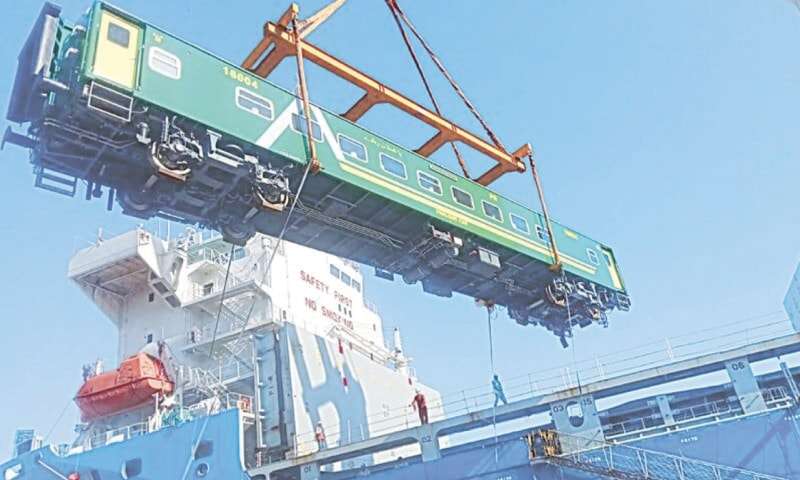Introduction
Pakistan’s Information Technology (IT) sector is at a crossroads. With an expanding local tech ecosystem, Pakistani companies are being presented with an exciting opportunity to tap into the rapidly growing tech markets in the Gulf Cooperation Council (GCC) region. The UAE, Saudi Arabia, and Qatar are undergoing an ambitious digital transformation, driven by the need to diversify their economies and establish themselves as leaders in the tech space. These nations are embracing the spirit of innovation that echoes the scientific advancements of the Islamic Golden Age, which saw the flourishing of knowledge and technology until its decline in 1258.
As Pakistan’s tech industry evolves, many believe there is a golden opportunity for local IT firms to expand into these lucrative markets. With a talented workforce, a growing number of tech startups, and an influential Pakistani diaspora already entrenched in the GCC region, Pakistani firms can play a key role in shaping the future of Middle Eastern technology.
The Rise of the Arab Tech Revolution
The Shift Towards Tech in the GCC
The Middle East, particularly the GCC countries, is undergoing an economic shift, moving away from an overreliance on fossil fuels towards technology and innovation. According to recent reports, while these countries currently spend modest portions of their GDP on research and development (R&D)—with the UAE at 1.5%, Qatar at 0.7%, and Saudi Arabia at just 0.5%—they are eager to change this narrative. Governments are pushing for digital transformation, not just for economic diversification but to create a globally competitive tech sector.
In this digital era, countries such as Saudi Arabia, Qatar, and the UAE have made significant strides in harnessing technology for both public and private sector growth. The booming startup scene, coupled with massive investments in artificial intelligence (AI), blockchain, and other cutting-edge technologies, makes these nations a hotbed for global businesses, particularly from emerging tech markets like Pakistan.
The Return of the Bayt Al-Hikma
The rise of technology in the GCC is reminiscent of the Bayt Al-Hikma (House of Wisdom) from the Islamic Golden Age. This historical institution played a pivotal role in preserving and advancing knowledge across various disciplines, including mathematics, astronomy, and medicine. Now, regional leaders are keen on creating a modern equivalent, channeling investments into science and technology to propel future growth and regional development.
Opportunities for Pakistan’s Tech Industry in the GCC
Leveraging the Pakistani Diaspora
One of Pakistan’s biggest advantages when entering the GCC tech market is its strong and influential diaspora, particularly in countries like the UAE and Saudi Arabia. Many Pakistani professionals occupy leadership roles in tech companies, making them key players in driving the growth of the digital economy in these countries. This presents an opportunity for Pakistan’s local IT firms to collaborate with their counterparts in the GCC region, tapping into their networks and expertise.
Syed Azfar Hussain, Project Director at the National Incubation Center (NIC) in Karachi, emphasizes that Pakistan’s tech companies can strategically align themselves with the growing demand for digital transformation in these countries. As industries in the GCC region undergo radical changes, Pakistan’s expertise in technology and engineering can provide valuable solutions. Forming partnerships with local players in the Middle East can help Pakistani companies access high-value projects, particularly in sectors like fintech, cybersecurity, industrial automation, and AI.
Developing Scalable Tech Products
To capitalize on the growing opportunities in the GCC, Pakistani tech companies need to focus not just on providing services but on developing scalable tech products. The GCC region is ripe for innovation, and with Pakistan’s strong academic background in engineering and technology, there is immense potential to create groundbreaking products that cater to both local and global markets.
Key areas to focus on include fintech, cybersecurity, and AI-driven solutions. As Saad Shah, an IT exporter with experience in the Middle East, notes, Saudi Arabia and the UAE are particularly receptive to new technologies in these domains. Many new businesses are looking to implement enterprise solutions and software that can enhance their operations and efficiency. By positioning themselves as leaders in these high-demand areas, Pakistani companies can carve out a niche for themselves in the competitive Middle Eastern market.
Building International Connections
To attract global clients and investors, Pakistani firms must meet international standards and adopt emerging technologies like generative AI, blockchain, and the Internet of Things (IoT). By building products and services around these technologies, companies can differentiate themselves in the marketplace and unlock new growth opportunities. Investing in research and user-friendly design, coupled with data-driven strategies, can help Pakistani firms stand out as innovators in the GCC region.
Pakistan’s IT industry can benefit from the guidance of its diaspora in the UAE and Saudi Arabia, who have deep insights into the local market dynamics. Partnering with established businesses and international investors can further enhance the competitiveness of Pakistan’s tech ecosystem.
The Path Forward: Building a Strong Tech Ecosystem
Empowering the Workforce Through Education
Pakistan’s potential to become a global tech hub lies in its young and talented workforce. With thousands of graduates coming out of top Pakistani institutions in technology and engineering, there is no shortage of skilled labor. However, to ensure that these graduates are equipped with the skills needed to succeed in the competitive global market, more focus must be placed on hands-on learning, internships, and boot camps. Programs that bridge the gap between education and industry requirements are essential in making young talent job-ready.
In addition to traditional education, encouraging digital entrepreneurship and freelancing can help foster innovation. Platforms like the Pakistan Startup Fund and incubation centers such as the NICs provide valuable resources to aspiring tech entrepreneurs. By supporting the development of startups and encouraging industry-academia collaboration, Pakistan can build a robust IT export base that contributes significantly to the global tech ecosystem.
Government Support and Policy Initiatives
To help Pakistani tech firms expand into the GCC region and beyond, government support is critical. This includes facilitating easier access to global markets, reducing bureaucratic hurdles, and providing financial incentives for research and development. By aligning national policies with global tech trends and focusing on building a thriving startup ecosystem, the government can play an instrumental role in transforming Pakistan into a leading tech exporter.
FAQs
1. How can Pakistani tech firms enter the GCC market?
Pakistani tech firms can enter the GCC market by forming strategic partnerships with local companies, focusing on scalable tech products, and leveraging the expertise of the Pakistani diaspora already established in the region.
2. What sectors offer the most opportunities for Pakistan’s IT companies in the GCC?
Key sectors that offer opportunities for Pakistan’s IT companies include fintech, cybersecurity, AI-driven solutions, and industrial automation.
3. How can Pakistan’s educational system support the country’s tech growth?
Pakistan’s educational system can support tech growth by focusing on hands-on learning, internships, intensive boot camps, and industry-academia collaboration to make graduates job-ready.
4. What are the challenges faced by Pakistani tech firms in expanding internationally?
Challenges include adhering to international standards, competing with established companies in global markets, and ensuring scalability of products while maintaining quality.
5. How important is innovation for success in the GCC tech market?
Innovation is crucial for success in the GCC tech market. As countries like Saudi Arabia and the UAE focus on digital transformation, businesses that offer innovative solutions in AI, blockchain, and IoT are well-positioned to succeed.
Conclusion
Pakistan’s tech industry has immense potential to thrive in the rapidly growing GCC markets. With a talented workforce, an established diaspora in key markets like the UAE and Saudi Arabia, and a focus on developing innovative, scalable tech products, Pakistan can transform itself into a global tech hub. By aligning with the digital transformation happening in the Middle East and leveraging opportunities for partnerships, Pakistan’s IT firms can establish a strong presence in the global tech ecosystem.


